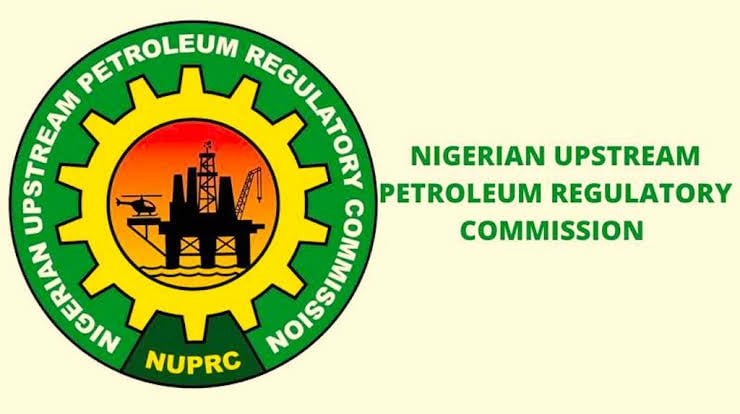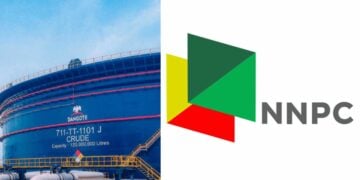The Nigerian Upstream Petroleum Regulatory Commission (NUPRC) has insisted that crude oil losses in Nigeria have dropped by over 90 per cent in the past four years, signaling significant progress in tackling oil theft.
According to the commission, daily crude oil losses fell from 102,900 barrels per day (bopd) in 2021 to just 9,600 bopd in 2025, marking the lowest level since 2009.
Refuting a report by a newspaper alleging that “N8.41trillion oil theft drains economy, fuels investors’ doubts,” the commission called the publication misleading, citing serious errors in the interpretation of crude oil loss data covering the period from 2021 to July 2025.
The disputed report based its claims largely on crude loss figures that the NUPRC had transparently published under the Petroleum Industry Act, 2021, as part of its mandate to foster openness in the sector. However, the commission stressed that the report misrepresented these figures and ignored critical context explaining the steep decline in oil theft and losses over the past four years.
Recall that on September 11, 2025, the NUPRC revealed that daily crude oil losses had declined to 9,600 barrels per day (bopd), marking the lowest level since 2009. This milestone has been widely acknowledged as a significant achievement attributable to the commission’s regulatory oversight and coordinated actions with security and industry stakeholders.
The NUPRC attributed this achievement to concerted efforts and strong collaboration among the commission, the Office of the National Security Adviser, the military, oil operators, and other stakeholders. These combined actions, both kinetic and non-kinetic, have been critical in reducing crude theft and securing the upstream petroleum sector.
The NUPRC pointed out several key points were highlighted by the NUPRC to underline the flaws in report:
Substantial Reduction in Crude Losses: Since the NUPRC’s establishment in 2021, there has been a monumental reduction of over 90 per cent in crude oil losses, dropping from a staggering 102,900 barrels per day in 2021 to 9,600 barrels per day in 2025.
This progress reflects successful joint efforts involving the commission, the Office of the National Security Adviser, the military, oil operators, and other relevant parties using both kinetic and non-kinetic approaches.
Incorrect Exchange Rate Usage: The newspaper’s calculation of a loss of N8.41 trillion hinged on an assumed exchange rate of N1,500 to $1 applied uniformly from 2021 to 2025. The NUPRC clarified this is grossly inaccurate because Nigeria’s official exchange rate was below N430 to $1 and averaged around N600 to $1 during most of the period when crude theft was at its peak. This inappropriate exchange rate exaggerates the monetary value of losses by several folds, rendering the N8.41 trillion figure misleading and unrelated to the current 2025 federal budget context.
Flawed Methodology: the commission also explained that the report failed to account for complex operational realities, oil price fluctuations, and exchange rate mechanisms critical to accurately quantifying losses. Without a deep understanding of industry dynamics and regulatory frameworks, such calculations are prone to misinterpretation.
The commission further insists that this decline in losses has positively impacted Nigeria’s broader economy. Supporting this, the National Bureau of Statistics (NBS) recently reported a 4.23 per cent growth in the economy, driven largely by increased oil production alongside growth in other sectors.
The NUPRC highlights several key initiatives under its leadership that have helped sustain this progress:
The “Project 1 Million Barrels” to increase daily production capacity.
Comprehensive metering audits to improve accuracy and transparency.
Restoration of shut-in production strings to boost output.
Increased rig counts and improved facility uptime to enhance operational efficiency.
Development of alternative crude evacuation routes to mitigate supply disruptions.
Insisting on Nigeria’s continued upward trajectory, the commission stated that the country now has the technical capacity to produce more than two million barrels daily. It is actively mobilising industry stakeholders—including operators, service providers, rig owners, off-takers, and financiers—to fully unlock this potential, leveraging an improved operating environment and enhanced social inclusion in oil-producing areas.
The NUPRC remained firm in its commitment to transparency, accountability, and sustained collaboration to ensure Nigeria’s upstream petroleum sector continues to thrive and deliver maximum benefits to the economy and its citizens.





